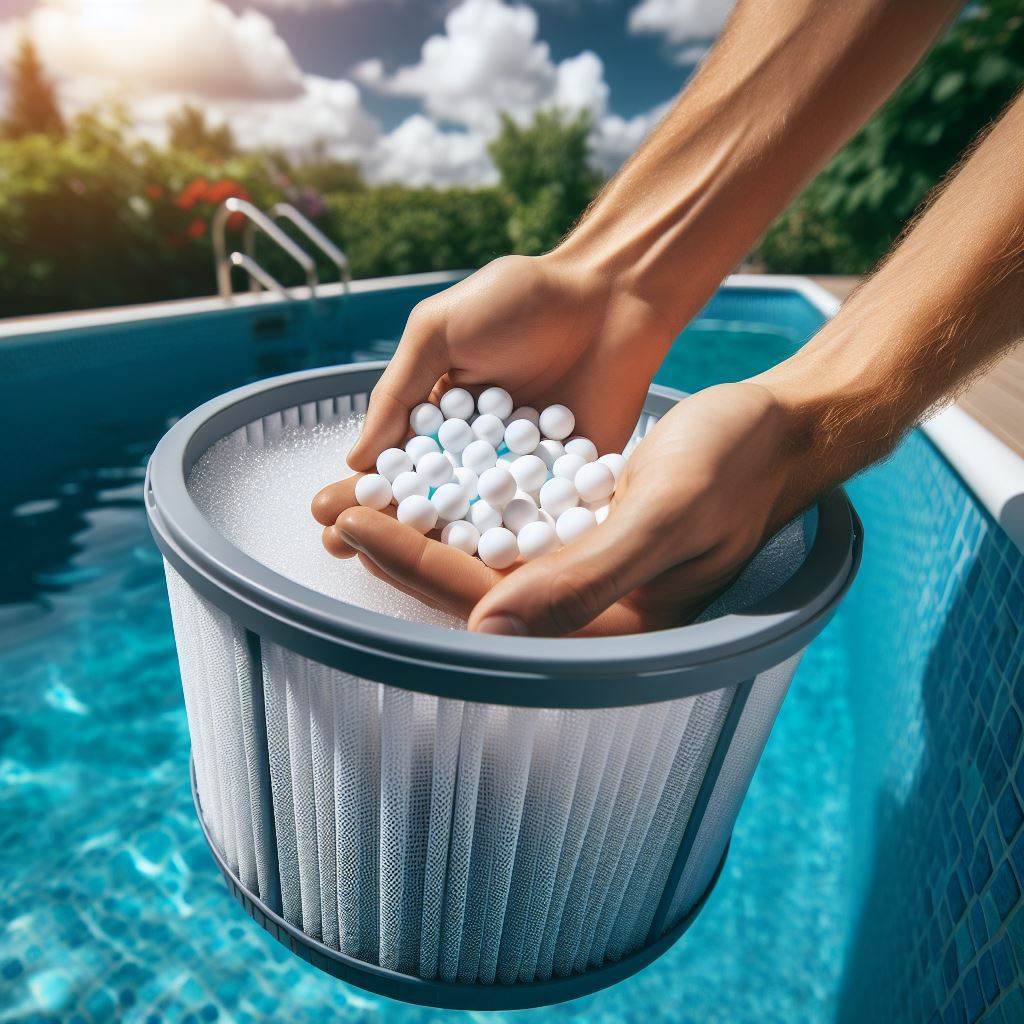Maintaining pristine pool water is a delicate balance that hinges not only on the mechanical action of pumps and filters but also on the chemical treatment of the water. Filter balls, a modern alternative to traditional sand or cartridge filters, are praised for their efficiency and environmental friendliness. However, they are not immune to the pitfalls of chemical mishandling. This comprehensive guide explores the nuances of chemical damage to pool filter balls, offering insights into repair strategies and preventative practices to safeguard your pool’s heart.

Deep Dive into Chemical Damage
Types and Causes
Oxidative Damage: Over-chlorination can lead to oxidative stress on filter balls, breaking down their structure.
pH Imbalance: Extreme acidity or alkalinity corrodes filter materials, affecting their integrity and filtration capability.
Incorrect Chemical Use: Using non-recommended chemicals can lead to adverse reactions with the filter media.
Signs of Damage
Physical changes like discoloration, brittleness, or deformation indicate chemical stress.
A noticeable decline in water clarity and quality suggests reduced filtration efficiency.
Assessment and Analysis
Conducting a Thorough Inspection: Detailed steps to visually and physically inspect filter balls for signs of chemical wear.
Performance Evaluation: Methods to test the effectiveness of filtration before and after suspected chemical exposure.
Expert Consultation: The importance of involving professionals in assessing and addressing severe damage.
Restoration and Recovery
Deep Cleaning: Techniques for removing chemical residues without causing further damage, including the use of gentle, non-reactive cleaning agents.
Rinse and Repeat: Importance of thoroughly rinsing filter balls to eliminate any cleaning solution remnants.
Functionality Testing: Verifying restoration success through controlled water filtration tests, comparing pre- and post-cleaning performance metrics.
Selective Replacement: How to decide which filter balls need replacement and integrating new ones without disrupting the filter bed’s balance.
Prevention: The Best Medicine
Balanced Chemical Treatment: Strategies for adding pool chemicals in a manner that minimizes risk to filter media, including dilution tips and the best times for chemical introduction.
Monitoring and Maintenance: Setting up a routine for checking pool chemistry and adjusting as necessary to stay within optimal ranges for both water health and filter media preservation.
Regular Filter Maintenance: Scheduled cleaning, inspection, and replacement of filter balls to ensure ongoing effectiveness and longevity.
Innovative Approaches to Filtration Care
Material Advances: Exploration of next-generation filter media designed to resist chemical damage and extend the lifespan of pool filtration systems.
Technological Solutions: Automated chemical dispensers and smart pool monitors that help maintain perfect chemical balance, reducing human error.
Education and Training: Resources and training programs for pool operators and homeowners on best practices for chemical handling and filtration maintenance.
Conclusion
Chemical damage to pool filter balls can undermine the cleanliness and safety of your swimming environment. By recognizing the signs of chemical wear, implementing targeted restoration techniques, and adhering to a preventative maintenance schedule, you can protect your pool’s filtration system from harm. Embracing advanced materials and smart technology further enhances the resilience of your pool against chemical imbalances, ensuring crystal-clear water for years to come.

 Instant
Quote
Instant
Quote Email
Us
Email
Us